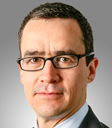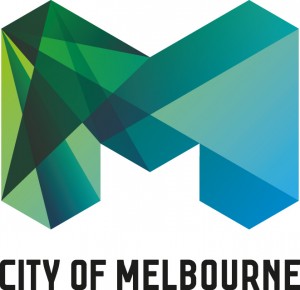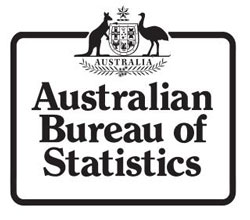| TIME |
AGENDA |
|
|
EMBRACING INTERNET OF THINGS IN SMART CITIES DEVELOPMENTS
Due to the proliferation of internet in today’s world, Internet of Things has moved beyond buzzwords and transform into a prominent force in smart cities. More cities are now embracing technologies as a solution to not only develop but also enhance the performance, livability, workability and safety of their cities.
The following sessions will explore the future trends and opportunities available in leveraging on technologies to build a sustainable city. Delegates will also learn about how technologies are being used maximize the city infrastructures, as well as gain insights on overcoming obstacles and implementing solutions in integrating technologies into the city.
|
|
| 09:00 – 09:15 |
Opening Address by Conference Chairman |
|
 |
Conference Chairman: David Klingberg, Chief Executive Officer, David Lock Associates
David has a real passion to create great places for people. Director and Principal of David Lock Associates Australia, he has over 25 years experience in the planning and design industry. David specializes in bringing together teams and managing industry leaders to deliver outstanding outcomes in urban development, town planning and urban design. David has worked on significant projects nationally and internationally for state and local governments, as well as the private sector.
David is driven to produce great planning and urban design outcomes, education and training. He regularly presents at conferences both in Australia and Asia and teaches at universities and for the Planning Institute of Australia. |
 |
| 09:15 – 10:00 |
Keynote Address: Role of Open standards and Interoperability to Create Smart Connected Cities
- Learning from UK Government best practices: IoT demonstration projects
- Achieving interoperability and standards for smart cities and IoT
- Hypercat and the opportunity for Australia smart cities
|
|
 |
Speaker: Catherine Caruana-McManus, Chairman, IoT Alliance Australia
Catherine Caruana-McManus is a global expert in smart cities and digital transformation.
Recently, Catherine was recognized by Prime Minister Malcolm Turnbull’s Knowledge Nation initiative as one of Australia’s leading thinkers and innovators in big data and smart cities.
Catherine is the Founder of Giant Ideas, which provides IoT and smart city advisory, and Director of an Australian based IoT integration company, Meshed. Catherine is also Board Member of Hypercat Australia and Chairperson of the IoT Alliance Australia Smart Cities and Industry Engagement Work Stream.
Catherine’s former roles include Smart Industry and Smart City Director with IBM, Director of MC2 Consulting. Catherine has a background in urban planning, economics and finance. |
|
| 10: 00 – 10:45 |
International Case Study: ICT in Creating City of Tomorrow – Songdo City, South Korea
- Songdo’s impressive transformation from reclaimed land to the Smart City today
- How technologies are being utilized to maximize infrastructure efficiencies
- Connected city, sustainable city – How connectivity can lead to the city’s sustainability
- Overview on the sustainability lifestyle and business environment in Songdo City
|
|
 |
Speaker: Ben Chung, Innovation Centre Lead, Cisco Korea
Ben has various experiences in ICT industry – including Research & Development, Technical Support, Consulting, Architecture, Product / Service / Solution Sales, Project / Program Management, Operation, Management and Leadership with several years of hands-on and real industrial experiences/exposure in technical, business & leadership areas.
He is also one of the prominent speakers in the area of Innovation, Digital Transformation, Smart City and IoT in Asia.
|
|
| 10:45 – 11:00 |
Morning Refreshments & Networking |
|
|
DRIVING ENERGY EFFECTIVENESS USING SMART AND CLEAN TECHNOLOGIES
Global warming and the depletion of natural resources are pressing issues in today’s world. With the expectation of rising population in a city, energy consumption is on a rapid rise. Stakeholders are facing the challenges of ensuring a sustainable supply of utilities for current and future needs. As a result, decision making frameworks to ensure optimal use of utilities are needed in order to ensure the basic needs of everyone in the city, now and in the future.
These sessions will explore how smart grid can be used to achieve higher utilities efficiencies, while simultaneously being leveraged on to predict energy consumption patterns. In addition, sessions will also provide a glimpse into future energy trends such as renewable energy and innovative energy solutions to help delegates stay abreast of trends and developments.
|
|
| 11:00 – 11:45 |
Case Study: How Disruptive Technology Helps in Delivering Greater Utilities Efficiency
- Disruptive technology and future energy landscape in Smart City
- Horizon Power’s roadmap to embrace Smart Grid
- Why Microgrid – potential benefits of Microgrid to utilities providers
|
|
 |
Speaker: Frank Tudor, Managing Director, Horizon Power
Frank Tudor has held various executive management roles over the last 25 years in the European, Asian and Australian oil, gas and power industries with BP, Woodside and most recently Horizon Power.
Frank lectures part-time in oil and gas economics and law at the University of Western Australia for over 10 years. Frank is also the Vice Chairman of the Chamber of Commerce and Industry’s (CCI) Energy and Resources Forum. He was the National Chairman of the Australian China Business Council from 2008 – 2013 and is currently Board Member of the Federal Government’s Australia China Council and Member of the ANU China in the World Advisory Board. |
 |
| 11:45 – 12:30 |
Zero Emission – Clean Energy in Smart Cities
- Outlook of renewable energy in Australia Smart Cities
- Clean energy in Australia today
- How clean energy helps in achieving “zero emission”
- Ahead of clean energy – Regulatory and innovation solutions for renewable energy
|
|
 |
Speaker: Kane Thornton, Chief Executive, Clean Energy Council
Kane Thornton is Chief Executive of the Clean Energy Council, the peak body for the renewable energy industry in Australia.
Kane has more than a decade’s experience in energy policy and leadership in the renewable energy industry. Kane has advocated for and helped design the policies that have been critical to the renewable energy industry’s growth. His previous roles include Executive Officer of Renewable Energy Generators Australia and Senior Manager and Advisor for Hydro Tasmania. He has held a range of advisory and board roles with government and non-government organisations in the climate change and energy sector, and is a Non-Executive Director of Sustainability Victoria.
Kane is a graduate of the Australian Institute of Company Directors, has a Masters in Social Science and Bachelor of Information Technology. |
|
| 12:30 – 12:45 |
Seamless Smart City Network Modeling for LoRA Mesh and LTE Network |
|
 |
Speaker: Yahya Khaled, Spectrum Engineer, ATDI
Yahya Khaled is a Spectrum Engineer with ATDI, software solution company headquartered in France, who is passionate about IoT, home automation and software defined radios.
Yahya has extensive experience with 4G and SRD modeling and simulations. |
 |
| 12:45 – 13:45 |
Lunch & Networking |
|
|
SMART CITY NEEDS SMART CITIZENS
A successful smart city requires smart citizens who co-create the city together with the government. Engaging citizens in smart city development is one of key elements in crafting a sustainable smart city and city councils have established Digital Transformation Office to explore the best practices in getting the citizens, communities and businesses involved in smart cities development.
The following sessions look to explore the importance of citizen involvement in developing smart cities and capitalizing on the vast economic opportunities available in allowing citizens to gain access to the data collected. Delegates will understand the latest developments and successful case studies in getting the citizens onboard as well as learn about benefits of embracing open data in developing the city of the future.
|
|
| 13:45 – 14:30 |
Open Data: Driving Economic Efficiencies & Citizen Engagement
- Co-creating the smart cities
- How open data will unlock innovation and performance of a smart city – End user driver innovation
- How open data can lead to citizen engagement and greater economic value
|
|
 |
Speaker: Michelle Fitzgerald, Chief Digital Officer, Smart City Office, City of Melbourne
Michelle Fitzgerald is City of Melbourne’s first ever Chief Digital Officer (the first position of its kind for Victorian Local Government), managing the newly-formed Smart City Office. In this role, she works to attract start-up investment, drive the take up of digital, agile development and open data across customer services for City of Melbourne.
Michelle plays a chief role in leading the shift in infrastructure management towards smart city modelling and collaborating with Melbourne’s research and higher education sectors to build the city’s education capabilities and reputation as a knowledge hub.
Michelle was previously a Partner at PricewaterhouseCoopers Australia, taking charge of the Digital, Data and Customer Consulting portfolio. She is also a Non-Executive Director for Standards Australia, helming key advisory role on digital disruption. |
 |
| 14:30 – 15:15 |
Global Insights: Successful Smart Cities Implementation Around the World
- Learning points on Barcelona and Amsterdam
- Hurdles and solutions in Smart Cities implementation
- Engaging citizens and corporate buy-in in Smart Cities
|
|
 |
Speaker: Gordon Falconer, Smart Cities Director, Schneider Electric Singapore
Gordon is currently Director of Smart Cities for Schneider Electric Singapore. He was formerly Director of Urban Innovation at CISCO. He is a smart city expert, city consultant, global thought leader in city / property / infrastructure development and technology clusters, city developer, and chartered surveyor.
Gordon was formerly Head of Strategy and Real Estate for Masdar City, one of the world’s most innovative greenfield and sustainable city projects in Abu Dhabi. During the time, he was heavily involved with strategies for both sustainable real estate and sustainable utility integration in the areas of clean energy, water, infrastructure, information and communications technology (ICT), and ICT financing.
|
 |
| 15:15 – 15:30 |
Afternoon Refreshments & Networking |
|
|
REALIZING THE VALUE OF THE DATA
The amount and complexity of data increase exponentially over the last 10 years and one of the main challenges faced in smart cities today is having too many data in different forms. This undoubtedly hinders the governance in leveraging on the data to make strategic decisions that can unleash the greatest potential of a smart city.
These sessions seek to provide solutions to dealing with the volume and complexity of the data, streamlining the different types of data collected into useful information that aids in decision making. It will also explore the network capacities needed to supporting ICT developments in smart city. Last but not least, delegates can takeaway best practices to ensure cyber security and protection of confidential and sensitive data.
|
|
| 15:30 – 16:30 |
Power Panel Discussion: From Big Data to Smart Data – Decoding the Value of Data
- How would the data collected help in infrastructure asset management
- How to integrate the different types of the data collected
- Is the existing network suffice to support the 3Vs in Big Data?
- Predictive analytics from infrastructure data to enhance the quality of living
|
|
|
Panelists:
- Michael Comninos, Executive Director – Infrastructure and Analytics, Greater Sydney Commission
- Ric Clarke, Director, Emerging Data & Methods, Methodology Transformation Branch, Australian Bureau of Statistics
- Catherine Caruana-McManus, Chairman, IoT Alliance Australia
|


|
| 16:30 – 17:00 |
Exclusive Case Study: Measuring Freight Performance in Australia – Agile Analytics for Informed Decisions in Transport Infrastructure
- Using integrated multimodal data to gain targeted and timely information about freight movement in the road network
- Meeting the challenges of acquiring, processing, combining and analysing complementary data from diverse sources
- Understanding the enabling role of ‘agile analytics’ and Big Data in future decision making about national infrastructure
|
|
 |
Speaker: Ric Clarke, Director, Emerging Data & Methods, Methodology Transformation Branch, Australian Bureau of Statistics
Ric Clarke is the Director of Emerging Data and Methods woth Australian Bureau of Statistics (ABS). He joined ABS as a technologist in 2008, after a career of more than 15 years with the Defence Signals Directorate (DSD) spanning communications analysis, systems development, project management and strategic planning. Originally a theoretical physicist, Ric has postgraduate qualifications in Computer Science.
In his current role, Ric leads a multidisciplinary team in the delivery of innovative prototype solutions for official statistics. This work includes the investigation of new methods and technologies for exploiting complex digital information from diverse sources, such as survey and administrative collections, transactional data and sensor measurements. |
 |
| 17:00 -17:30 |
Beyond the Data: Cyber Security in Smart Cities
- Evaluating Australia current cyber security – Is it suffice to handle the surge in data collected?
- Conquering the Supply Dilemma: Lack of cyber security talent
- Data Privacy Act / Legislation in Data Security
|
|
 |
Speaker: Arno Brok, Chief Executive Office, Australia Information Security Association
As the first appointed CEO of AISA, Arno Brok is committed to delivering value to its members, the community, and the information security industry. Arno is a former AISA Board executive and held the position of AISA National Director from 2013 – 2015.
Arno was vital in defining the strategy for AISA to advance from an association purely for information security professionals to one where all individuals, businesses and governments are educated in the risks and dangers of cyber-attack and data theft. Arno also set up AISA’s first Advisory Council that made recommendations to AISA’s Board of Directors.
|
|
| 17:30 |
Closing Remarks by Conference Chairman |
|